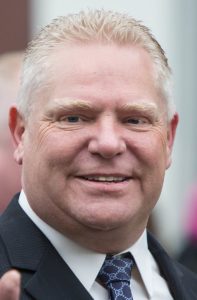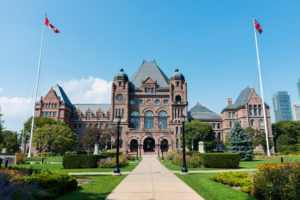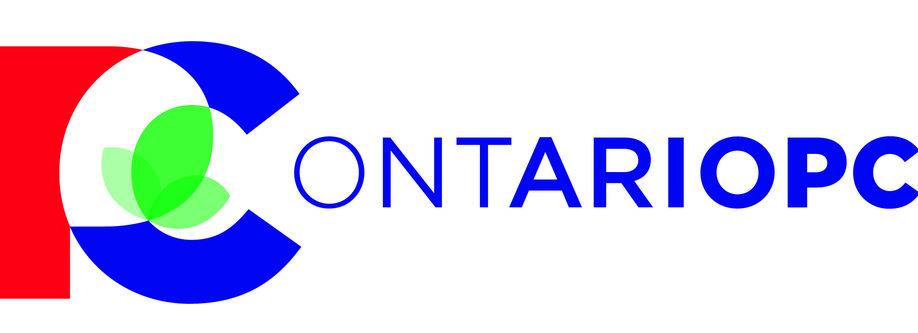 March 11, 2018 – It’s a result that few would have anticipated or predicted: Doug Ford is the new leader of the Ontario Progressive Conservative Party. His victory moves the PC party dramatically to the right and throws a giant curveball into the election plans of all three major parties just 89 days before Ontarians cast their ballots.
March 11, 2018 – It’s a result that few would have anticipated or predicted: Doug Ford is the new leader of the Ontario Progressive Conservative Party. His victory moves the PC party dramatically to the right and throws a giant curveball into the election plans of all three major parties just 89 days before Ontarians cast their ballots.
In what was an even tighter race than expected, the former City of Toronto Councilor secured 50.6 % of the final ballot points compared to 49.4 % for Christine Elliott.
The announcement of the new leader came seven hours later than it was supposed to, before only a handful of members, after a wild afternoon of recounts and a late evening message to the party faithful to leave the hall and await results at home.
Ford’s come-from-behind victory was set up by impressive second and third ballot results. After trailing Christine Elliott by only 96 votes (out of 12,267) on the first ballot, Ford jumped into the lead when Tanya Granic Allen’s supporters’ second choice ballots were then added to the mix. With Ford then sitting with 47% of the vote, the lead was simply too much for Elliott to make up as Caroline Mulroney’s supporters divided their loyalties between the two front runners on the subsequent ballot. Christine Elliott came in second, 153 points behind Ford on the final ballot.
But is the saga over? Neither Elliott nor third-place candidate Caroline Mulroney stood with Ford at the podium, and as of this morning, Elliott has not conceded. After midnight, her team issued a statement saying she is considering a court challenge to the results over voting irregularities related to the crucial allocation of members to their ridings, alleging entire towns were placed in the wrong ridings. (Because the result was determined not by a straight majority of votes – which Elliott reportedly won – but through an allocation process to give each riding in the province equal weight, the identification of each voter with their own riding was critical.)
We now have the bizarre situation where the party president has introduced Ford as the winner, his victory has been trumpeted in the news, but the official PC website still says not a word about a new leader. The Elliott challenge to the results could add a further dramatic twist to what has been the most chaotic political leadership race in memory.
However, assuming the results stand, Ford’s victory is one for the ages: it sets up the sharpest contrast between the PC Party and the Liberals in the upcoming election, and it follows what has been arguably the most tumultuous leadership race in recent memory.
Ford presented himself up as the ultimate outsider and the candidate most likely to deliver unambiguous, conservative change to Queen’s Park. Ford not only attacked Premier Wynne, but spoke forcefully against what he called “corruption” in his own party. Ford argued at one point that nominations in as many as “40 or 50 ridings” had “internal issues” that needed to be addressed and even set up the voting process as potentially corrupt. It’s now hard to imagine this being an issue with Ford coming out on top.
His win comes despite a lack of support from within the sitting PC caucus at Queen’s Park. The two sitting MPPs who supported Ford were Toby Barrett (who alone among the PC Caucus publicly defended Patrick Brown following his resignation) and Raymond Cho (a former Toronto Council colleague). Nevertheless, Ford will aim to translate his plain-spoken, taxpayer-focused conservatism into victory over what is expected to be a no-holds-barred challenge from Premier Kathleen Wynne and progressive voters– in the general election on June 7th.
Moving Forward
 Now the real work begins. With the anticipated revenues of Patrick Brown’s People’s Guarantee carbon tax up in smoke, Ford and his team will have to quickly develop and release a viable platform. Ford repeated many times on the campaign trail that he did not think he needed a full pamphlet of promises or a complicated budget process to cut waste from the government’s budget and defeat Kathleen Wynne and the governing Liberals, but rather just a handful of symbolic pledges to demonstrate his commitment to change.
Now the real work begins. With the anticipated revenues of Patrick Brown’s People’s Guarantee carbon tax up in smoke, Ford and his team will have to quickly develop and release a viable platform. Ford repeated many times on the campaign trail that he did not think he needed a full pamphlet of promises or a complicated budget process to cut waste from the government’s budget and defeat Kathleen Wynne and the governing Liberals, but rather just a handful of symbolic pledges to demonstrate his commitment to change.
Those pledges included:
- An end to the provincial cap and trade system and no new carbon taxes, plus a court challenge if the federal government attempts to implement a federally-mandated tax;
- Repealing the sex-ed curriculum;
- Replacing the planned increase in the minimum wage with a promise to eliminate all provincial income taxes on those making less than $30,000 per year;
- Cutting billions in “waste” through a line-by-line review of all government spending;
- Erecting billboards at Ontario’s borders proclaiming “Ontario Open for Business”.
And in the final days of the campaign, Ford courted the social conservative vote by promising to change Ontario health privacy laws to require parental notification if a child under 18 seeks an abortion.
His Inner Circle
The next few days are likely to be tumultuous as Doug Ford, the PC Caucus, candidates and staff figure out how to come together following such a divisive leadership race. Expect Ford to reach out quickly to build bridges and rally the party’s MPPs to his side and staff changes across the board.
Doug Ford’s winning campaign was run by Michael Diamond. Diamond is a campaign professional who has worked on over twenty political campaigns in five provinces, including playing a key role in the 2010 election of Rob Ford as Mayor of Toronto. With Ford now at the helm, Diamond is expected to play a major role in leading the Provincial Conservative campaign. Luckily for Ford, Diamond is a person with a reputation for sweating the details and getting things done.
Doug Ford does not have a seat in the Legislature but is expected to seek the PC nomination in his municipal stomping grounds of Etobicoke North, where he will be an immediate favourite against long-time Liberal backbencher Shafiq Qaadri. It is expected that Vic Fedeli will continue in the role of Parliamentary Leader through the election period. Chief of Staff Alykhan Velshi has resigned effective March 10, 2018.
Ford will need to make early decisions on what to do with the 40-50 nomination results he himself has questioned. While all three of Ford’s leadership rivals having promised to run as PC candidates regardless of the outcome, it will be interesting to see if that comes to pass, and how they heal the wounds.
The General Election
 In putting Ford at the helm of the party, a majority of PC members made the personal calculation that the Liberals’ unpopularity made the chance for an unabashedly conservative government more enticing than a safer, more pragmatic choice.
In putting Ford at the helm of the party, a majority of PC members made the personal calculation that the Liberals’ unpopularity made the chance for an unabashedly conservative government more enticing than a safer, more pragmatic choice.
Ford’s election as leader will immediately galvanize otherwise complacent and fair-weather Liberal and NDP voters, setting the scene for a bruising campaign where sharp rhetoric will be heard on all sides. The other parties will waste no time in tying Ford’s Progressive Conservatives, at least in spirit, with the tumultuous mayoralty of his late brother or the approach of U.S. President Donald Trump.
Doug Ford worked hard in the leadership campaign to present himself as an even-tempered and stable choice, and is anticipating that fatigue with the governing Liberals under Premier Wynne will be enough to overcome any questions about how he aims to lead the province.
The PC Party’s decision to embrace Doug Ford, his right-wing and social conservative agenda and a platform of deep spending cuts, will ensure the upcoming campaign is as much about them and their leader, as it is about Kathleen Wynne.
Game on!

